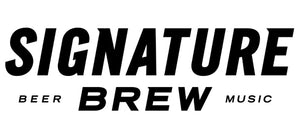Blog: Five Things Everyone Collecting Vinyl Should Know

In this guest blog, Sound Matters' founder and vinyl expert Marc Henshall talks us through everything you need to know about collecting vinyl.
We live in a digital age where music has never been so affordable and easy to access. Modern streaming services grant us access to vast libraries of music that would previously be impossible to store in your home. Put it this way, compared to just a few short years ago, we're spoilt for choice.
Despite this, vinyl record sales continue to grow year-on-year, with music fans of all ages discovering the joy of music pressed to wax. Streaming is great for consumer choice, but there's nothing quite like the experience of selecting an album, pulling the record from its sleeve, placing it on your turntable, and carefully lowering the stylus. As a format, it demands your attention in a way that digital (and particularly streaming) can never hope to achieve.
At Sound Matters, we advocate for vinyl as the best way to experience music at home. It requires a little extra thought and effort, but after all, nothing worth having in this world comes easily. So for those of you just getting started, here are five things you need to know as you set off on your vinyl journey.
1. Clean records are the key to vinyl nirvana
There's an old quote from the late John Peel that I absolutely love: "Somebody was trying to tell me that CDs are better than vinyl because they don't have any surface noise. I said, "Listen, mate, life has surface noise."
While it's true that a little surface noise is part of the charm, there's a fine line between character and unlistenable noise. For the best experience, you'll want to add some basic cleaning rituals to your daily listening.
Firstly, if you haven't already bought one, you'll want to get yourself a carbon fibre record brush. Use it before and after playback on each side to dry clean the record surface of any loose surface dust. If you buy your records used, or your records are noisy, it's time to get to work with some record cleaning fluid. It's a common misconception that you can't restore old records, but in truth, you'd be surprised what a good record cleaning fluid can achieve. For more information, check out our full guide on how to clean vinyl records. In short, used records will undoubtedly require a clean before they hit your turntable. With new records, a wet clean can be beneficial, but if you're disciplined with record care and regular use of a carbon fibre brush, wet cleaning should be a rare requirement.
2. Correct record storage will preserve your collection for future generations.
While even the most disciplined vinyl connoisseurs will occasionally need to clean the odd record or two, proper storage is key to reducing workload. In other words, the best course of action is to prevent your collection from getting so dirty in the first place. Use a carbon fibre record brush regularly, as mentioned, and invest in some anti-static inner record sleeves.
There are plenty of finer details about record storage on our website, but good quality inner sleeves are a good start. Most new records come with very basic paper sleeves that do very little for record protection and static prevention. Once housed in a good quality sleeve, always store your collection vertically; avoid stacking horizontally as the downward pressure will warp the records over time. For added outer sleeve protection, you can also buy Polypropylene outer sleeves. The thick PVC sleeves are best avoided (more on this over at the website).
3. A great sounding setup doesn't have to break the bank.
No doubt, the Hi-Fi world has a reputation for high price tags. Since vinyl's rebirth, though, a number of turntable manufacturers have dropped the barrier to entry significantly. By focusing on the core, essential mechanics and dropping the bells and whistles, brands such as Pro-Ject and Rega have created many entry-level turntables capable of audiophile performance.
Many models come in at less than £200 as a base level, but it's fair to say you should aim to spend as much as you can comfortably afford. Check out our guide to the best entry to mid-range turntables on the market as a starting point. Or if you're entirely new to Hi-Fi and are starting from scratch, we also have a guide listing the "five things you need to get started with vinyl today".
4. Independent record stores offer the best customer experience
Part of the vinyl experience is the sense of community, the joy of exploring new music, and the hunt for that elusive first pressing. I highly recommend supporting your local record store as much as you can, both from a quality perspective and for your overall customer experience.
A good independent record store acts as part of your local community, providing a social hub for music fans and important employment opportunities for your town or city. Online behemoths, such as Amazon, offer convenience, of course, but there's a far better experience awaiting at your local record shop. Many will offer support if you're trying to hunt down a particular record, and the really good ones will happily chat music and exchange recommendations. If you're particularly lucky, you might be blessed with a record store that puts on low-key gigs, often supporting up-and-coming artists. If we value great experiences, we have to support these places. Now more than ever, they need our business as the economy seeks a return to normality. 
5. Here's the real reason vinyl often sounds 'better.'
Vinyl purists repeatedly talk about the sound of vinyl, or how vinyl sounds superior to CDs or any other digital format. The truth is, that's not strictly true, and in some circles, this will be regarded as controversial...
Vinyl has 'a sound'. It's a very musical format, and there is something about its character that sounds appealing to the human ear. However, if you were to look purely at the specifications, digital would come out on top in terms of pure sound not affected by any mechanical playback and aspects such as dynamic range, for example.

Where vinyl does have a distinct advantage, however, is in the mastering process. Digital recording and mastering processes have made it easier for someone with less training and experience to produce commercially viable results. This, coupled with modern mastering practices that apply excessive compression and limiting at the mastering stage to raise perceived overall volume (better known as the loudness war), has meant that, while digital has the potential to handle more dynamic range, it is rarely allowed to do so.
Mastering for vinyl requires a great deal of experience and skill learnt over many years. When you buy a record on vinyl, you are greatly increasing the chance that someone with care and skill handled the final production process. Let's take the original CD copy of The Red Hot Chili Peppers, Californication as an example. The original CD is one of the worst examples of loudness war compression spoiling the end-result; the distortion was audible even to the untrained ear. The 2012 vinyl copy cut by Chris Bellman, on the other hand, offers a significant improvement. If it sounds better on vinyl, there's a good chance the mastering was handled with greater care.
Want to learn more about how starting a record collection can enhance your enjoyment of music? Head over to yoursoundmatters.com
Words by Marc Henshall.
Looking to enjoy a great vinyl with a great beer? Then look no further than Stylus, our juicy New England IPA.
Dropping the needle on this full-bodied beer will send apricot and tropical fruit grooves running across your tongue.
ABV: 6%
HOPS: Amarillo, Citra, Mosaic, Idaho 7
OG: 1.060
IBU: 22






